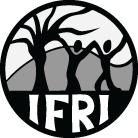Community Forest Management and REDD +
Newton, Peter, Brian Schaap, Michelle Fournier, Meghan Cornwall, Derrick W. Rosenbach, Joel DeBoer, Jessica Whittemore, Ryan Stock, Mark Yoders, Gernot Brodnig, Arun Agrawal. Community forest management and REDD+, Forest Policy and Economics (2015).
A team of students and faculty from the University of Michigan’s School of Natural Resources and Environment (SNRE) were published recently in the journal of Forest Policy and Economics, marking the culmination of a multi-year research program examining the relationships between Community Forest Management (CFM) and REDD+. The research was commissioned by the World Bank, through its Program on Forests (PROFOR) and its Social Development Department. Student research teams conducted comprehensive literature reviews to assess the theoretical possibilities for linking CFM and REDD+, culminating in a PROFOR publication in 2014 that focused particularly on Nepal, Bolivia and Tanzania. Building upon this research, student teams then spent several weeks in Nepal and Tanzania as part of their Masters Project work, conducting interviews with experts to better understand the interactions between REDD+ and CFM as they are playing out on the ground in both countries. This in-country research, combined with the results of the literature review, contributes important findings regarding existing synergies and potential conflicts between community forest management and emerging REDD+ policies and projects.
The team of researchers was led by Peter Newton (IFRI postdoc) and Gernot Brodnig (World Bank) and included SNRE students Brian Schaap, Michelle Fournier, Meghan Cornwall, Derrick Rosenbach, Joel DeBoer, Jessica Whittemore, Ryan Stock and Mark Yoders, as well as IFRI coordinator and SNRE professor Arun Agrawal.
Abstract
The urgent need to limit anthropogenic carbon emissions has led to the global initiative on Reducing Emissions from Deforestation and forest Degradation (REDD +). One option to facilitate the design and implementation of REDD + is to build on the experiences of community forest management (CFM). Despite tensions between the central objectives of REDD + and CFM, the two policy interventions share the objective of managing forests sustainably. REDD + projects can build on and benefit from the environmental, social, human, and institutional capital associated with existing community forest governance. Using a comparative case approach with studies from Nepal and Tanzania, we illustrate interactions between REDD + and CFM. In Nepal, most REDD + pilot projects have been located in community forest sites, especially in high-carbon forests. In Tanzania, REDD + funding is being used to expand the area of forest under Participatory Forest Management. Our study also highlights how community forestry institutions may need to be modified to satisfy key REDD + criteria. Greater institutional coordination, equitable benefit sharing mechanisms, and higher community capacity for monitoring, reporting, and verification are key areas needing change. There are significant risks, but the vast experience and significant successes of CFM can improve prospects for achieving REDD + objectives in other less-industrialized, forested countries.
News
IFRI Special Issue Collaboration
(17/09/2016)
FLARE Announces Keynote Speakers

